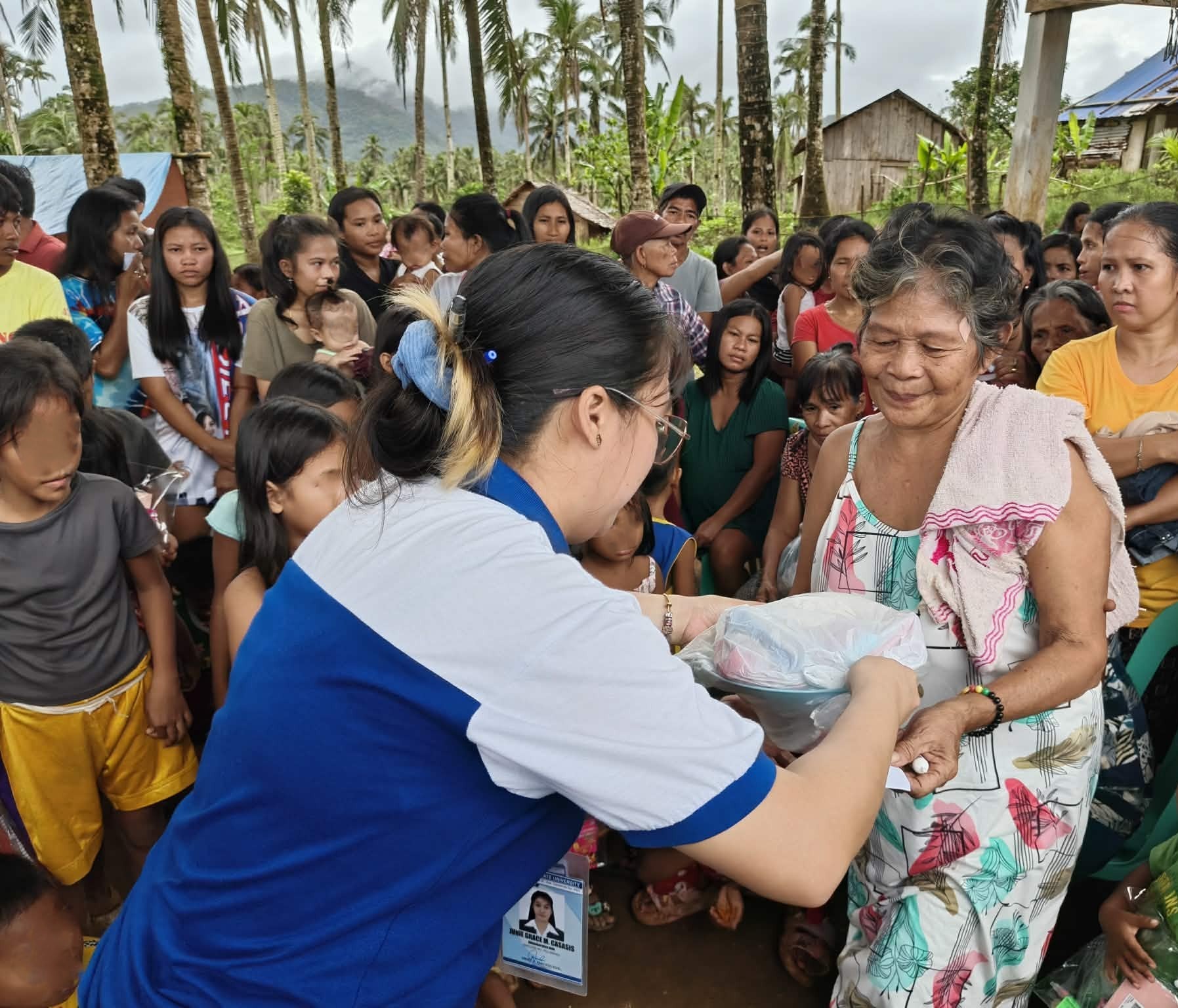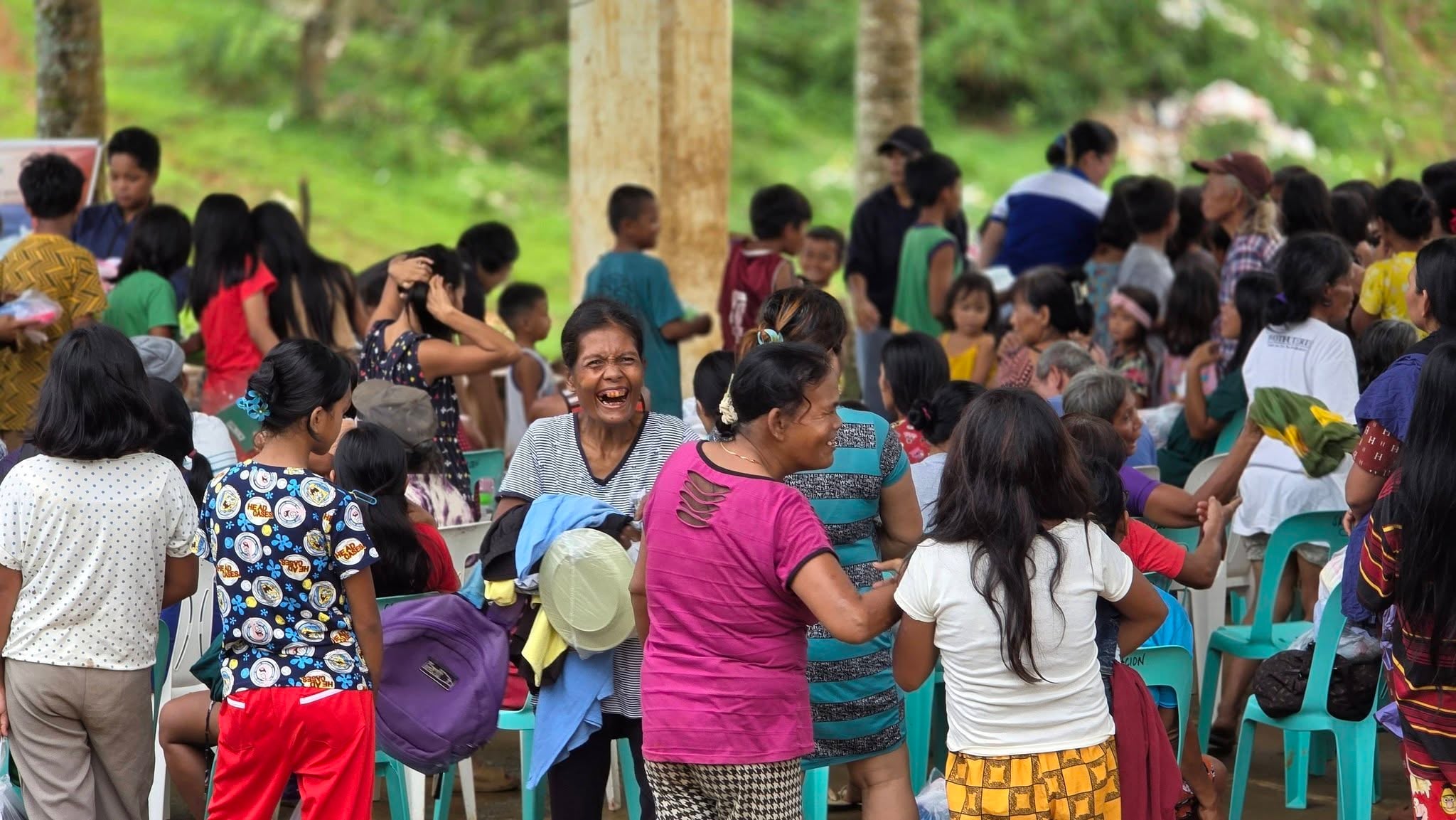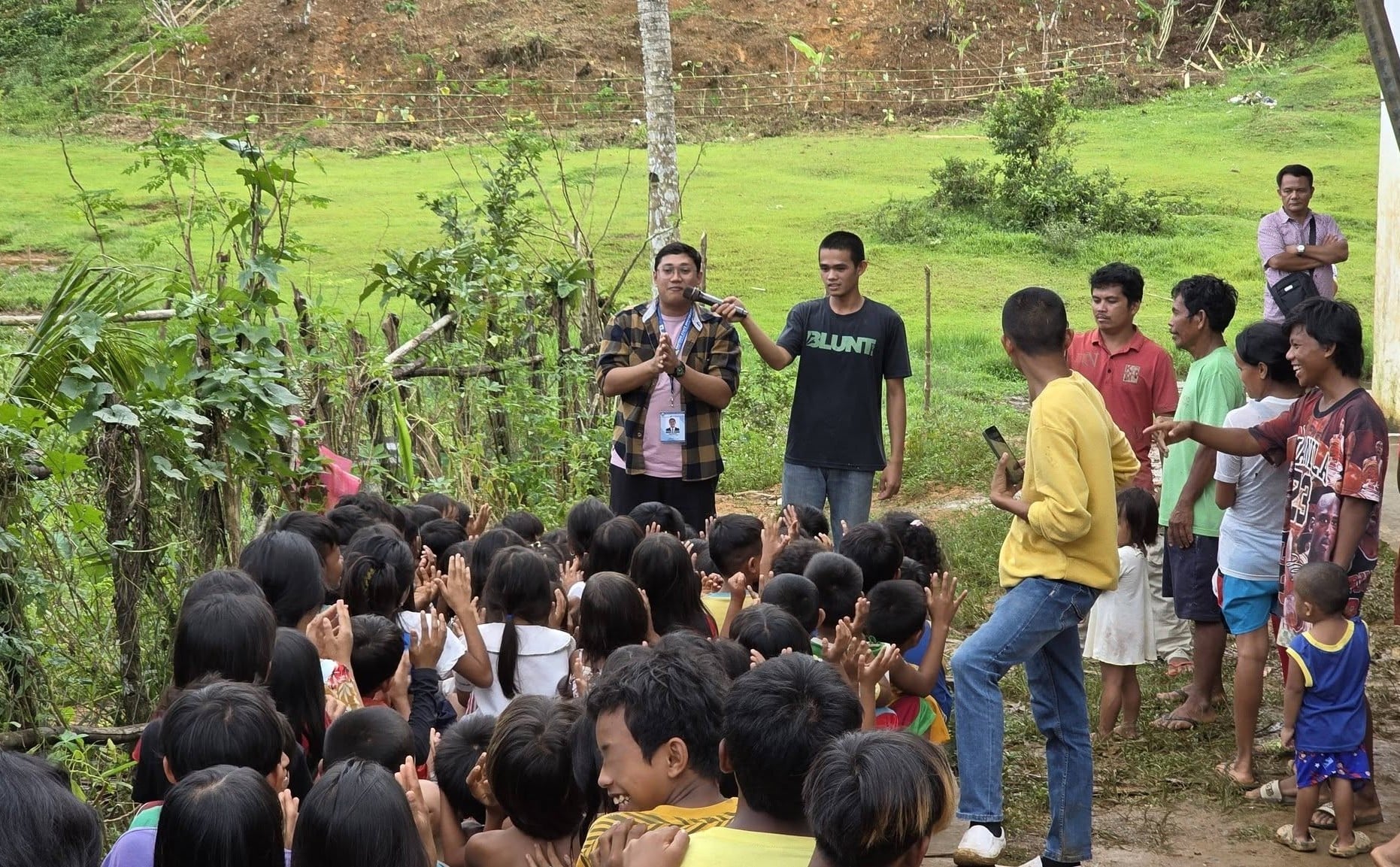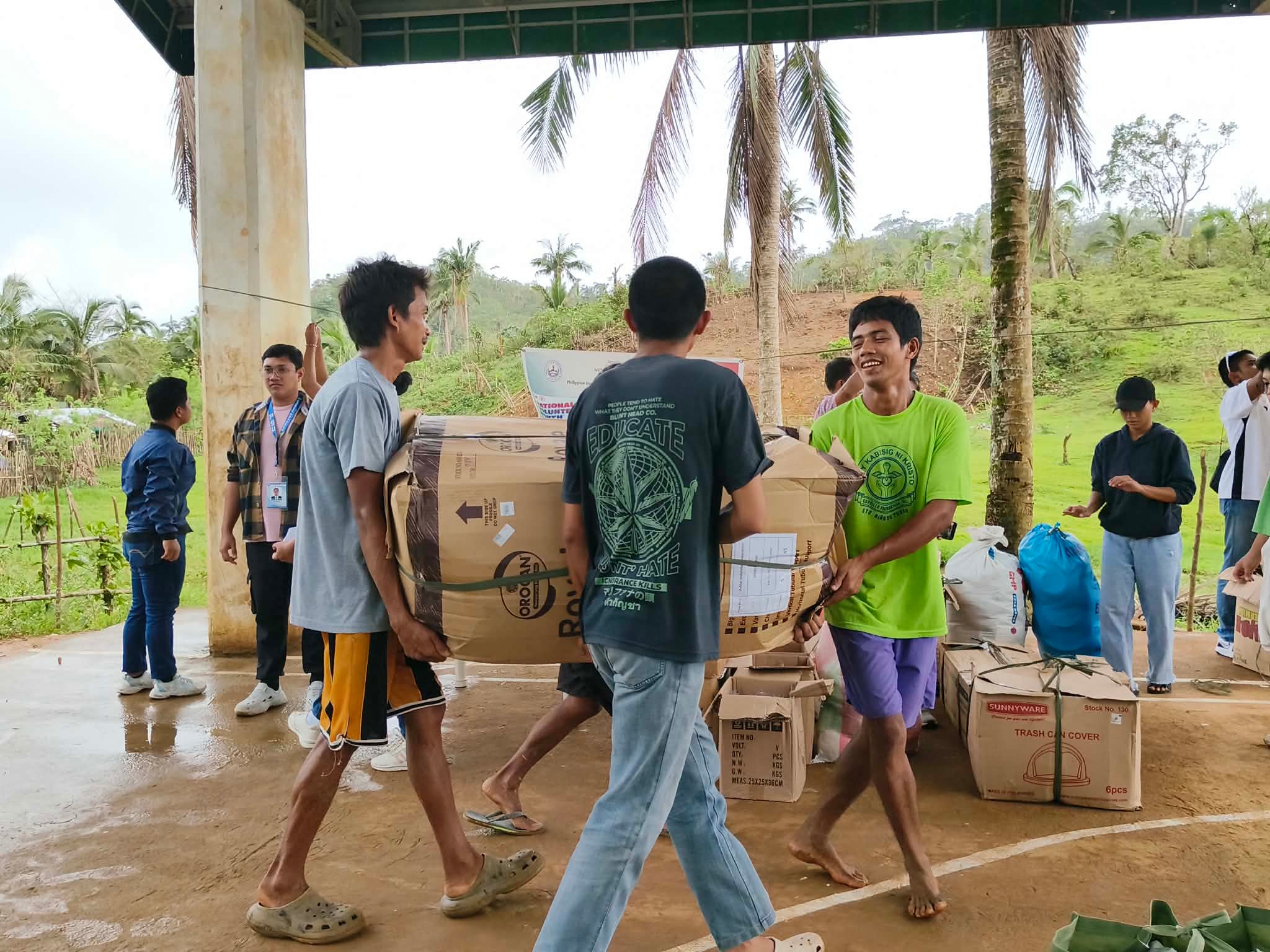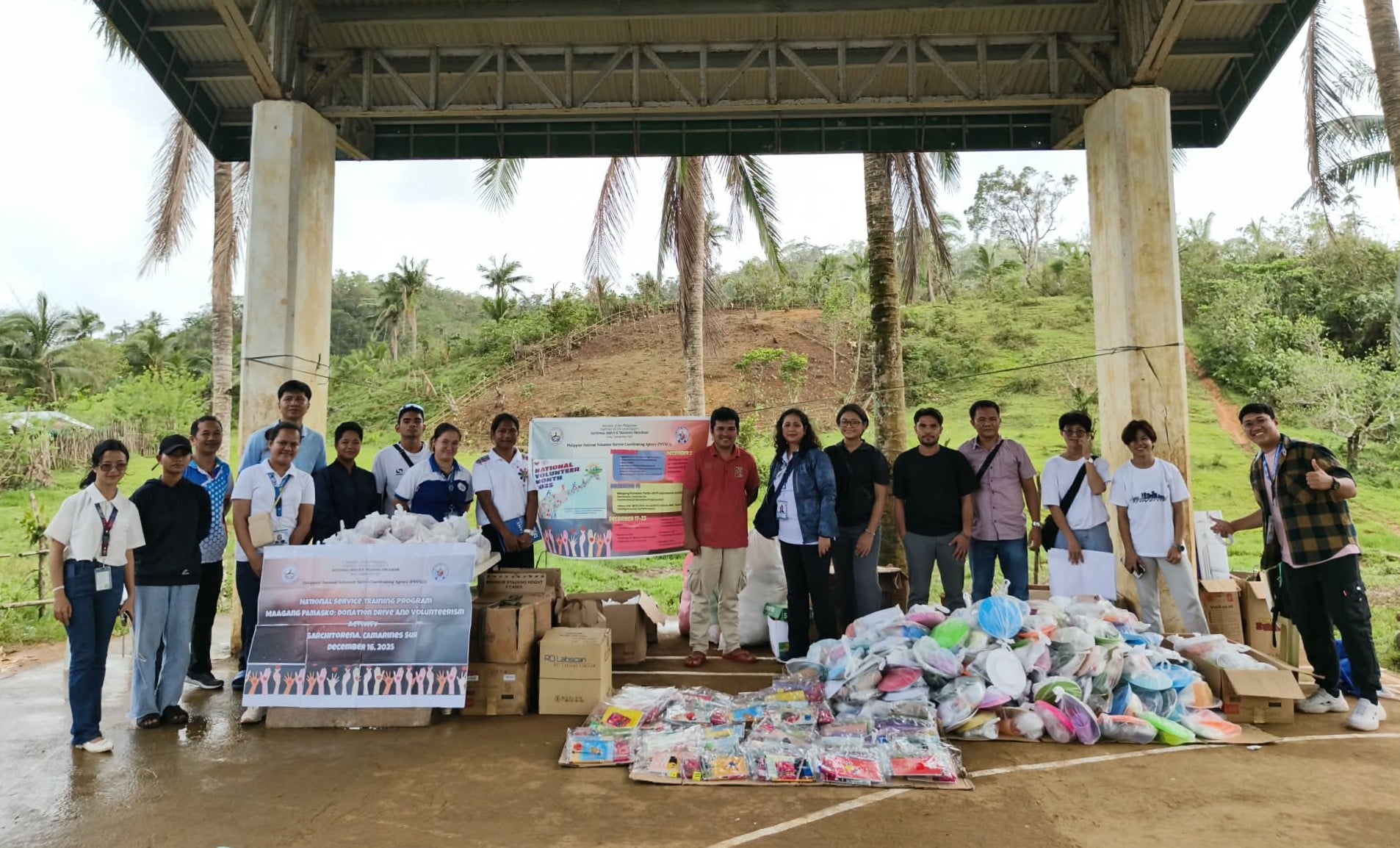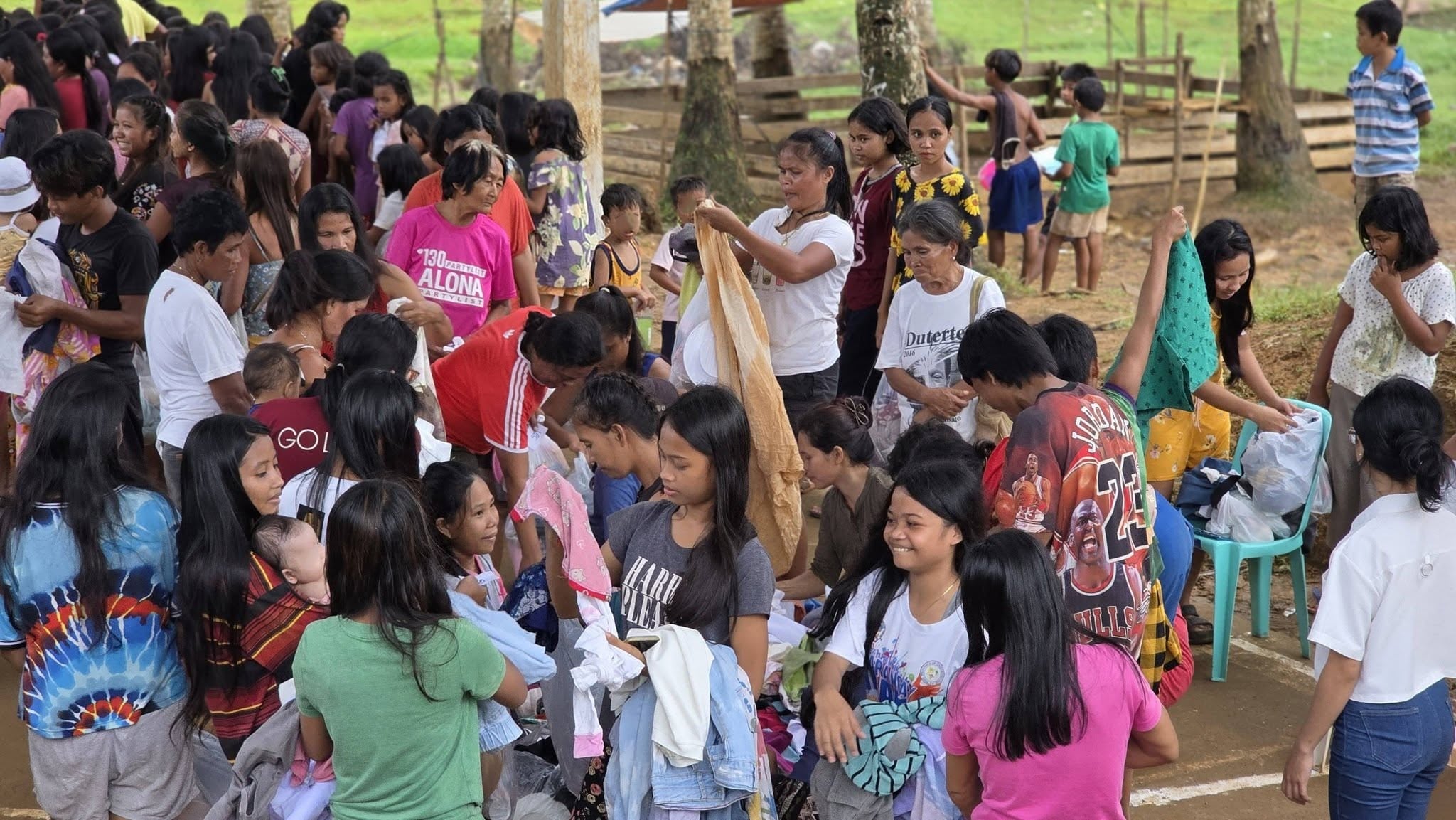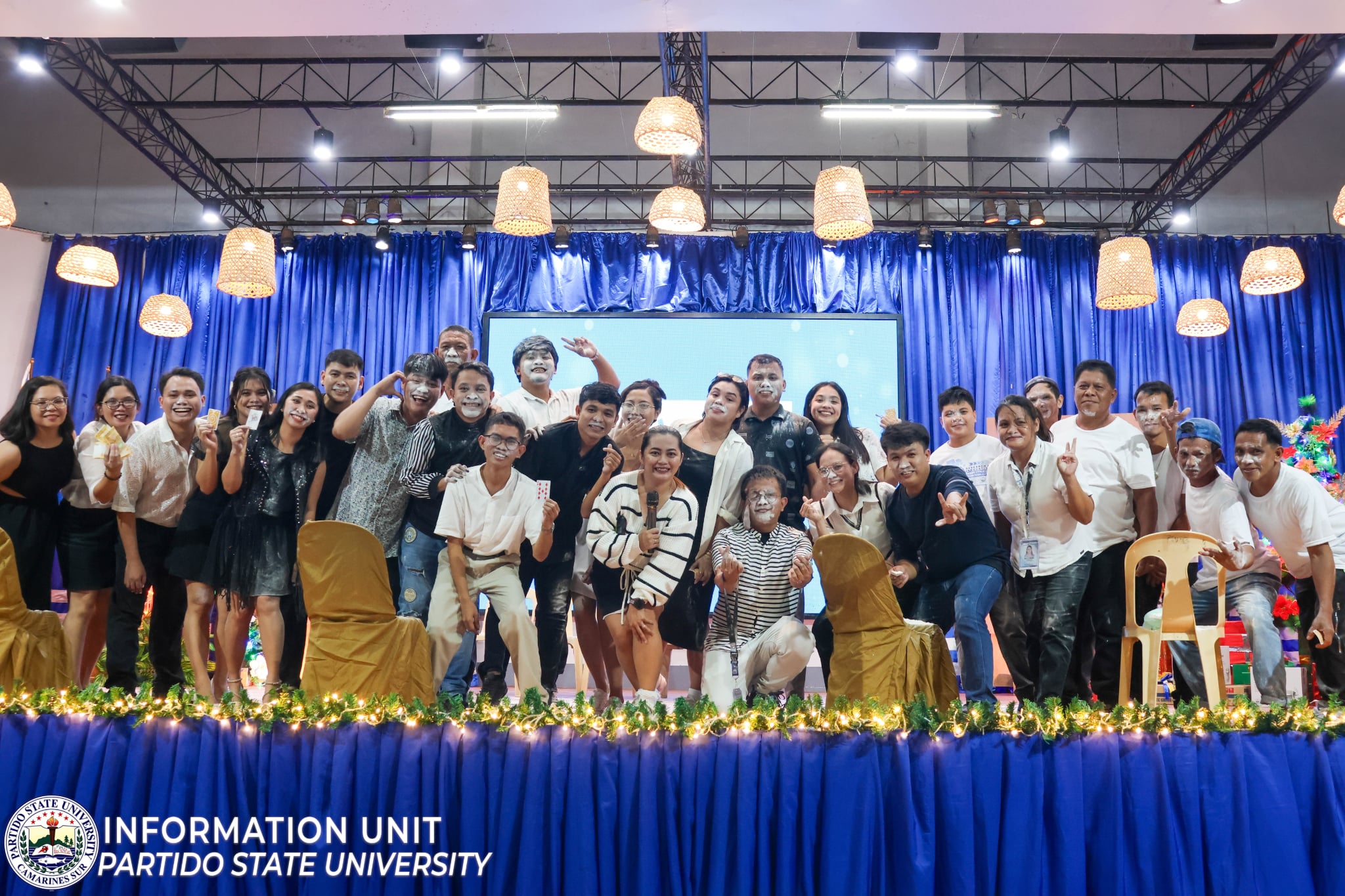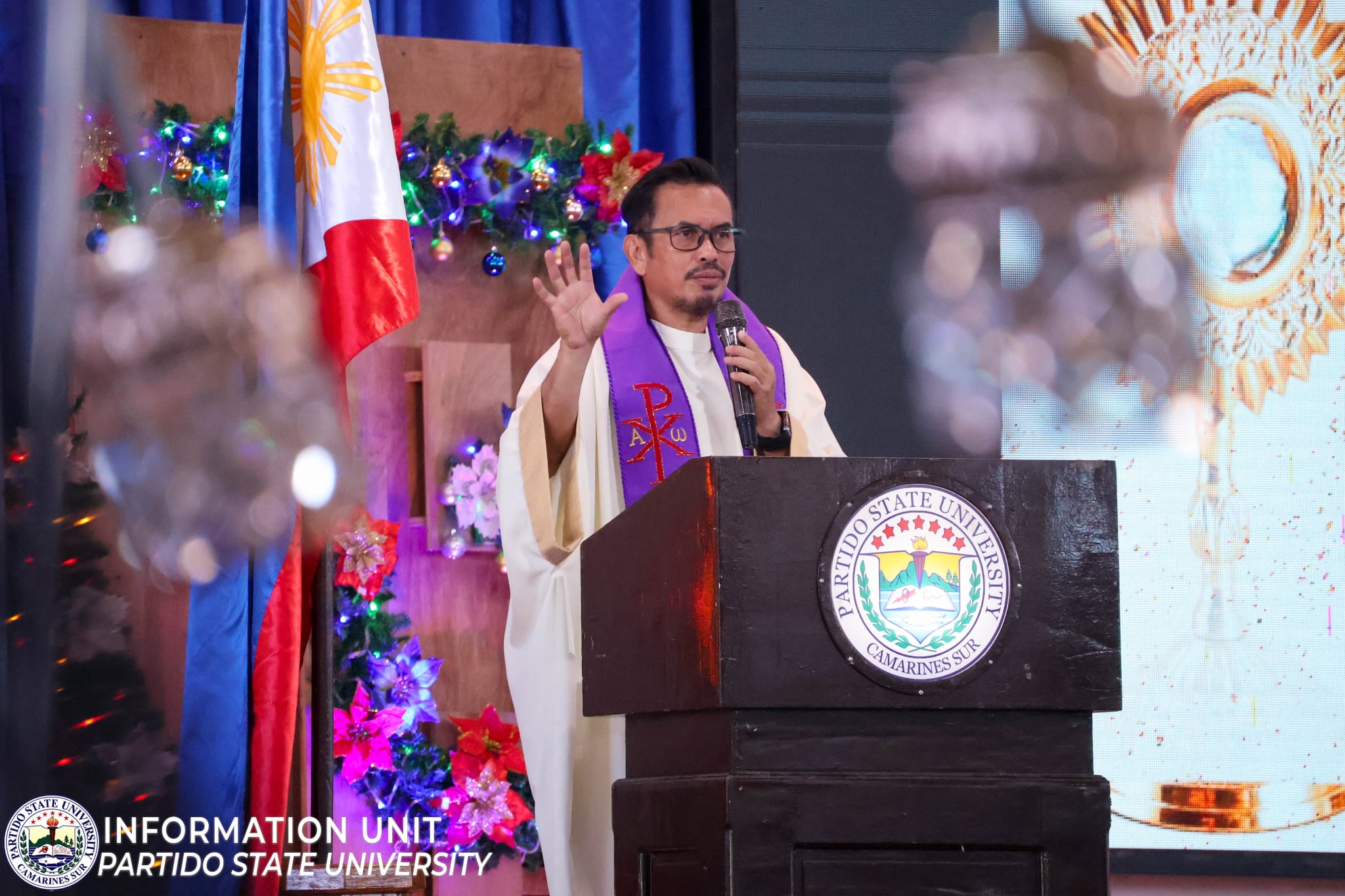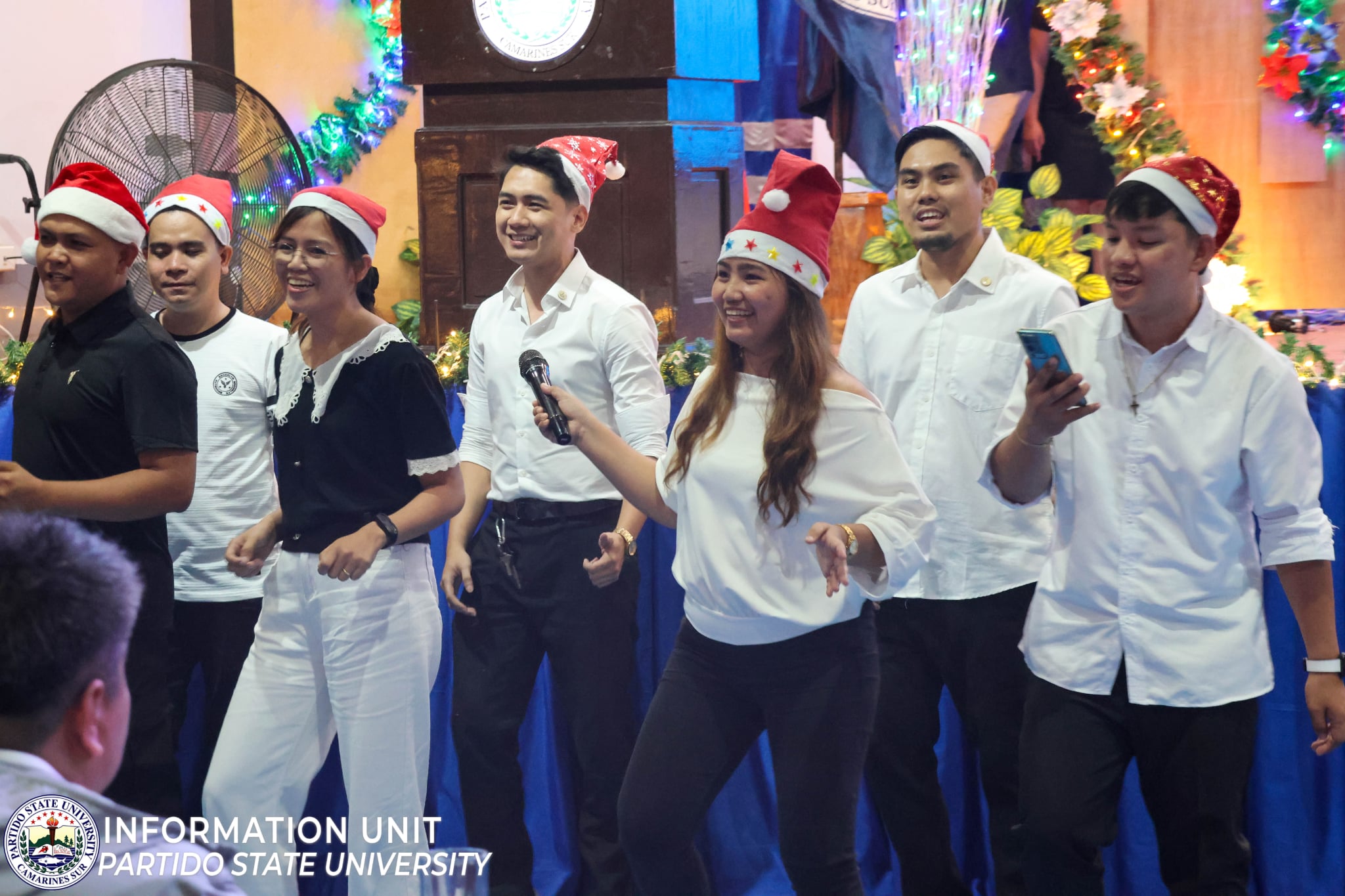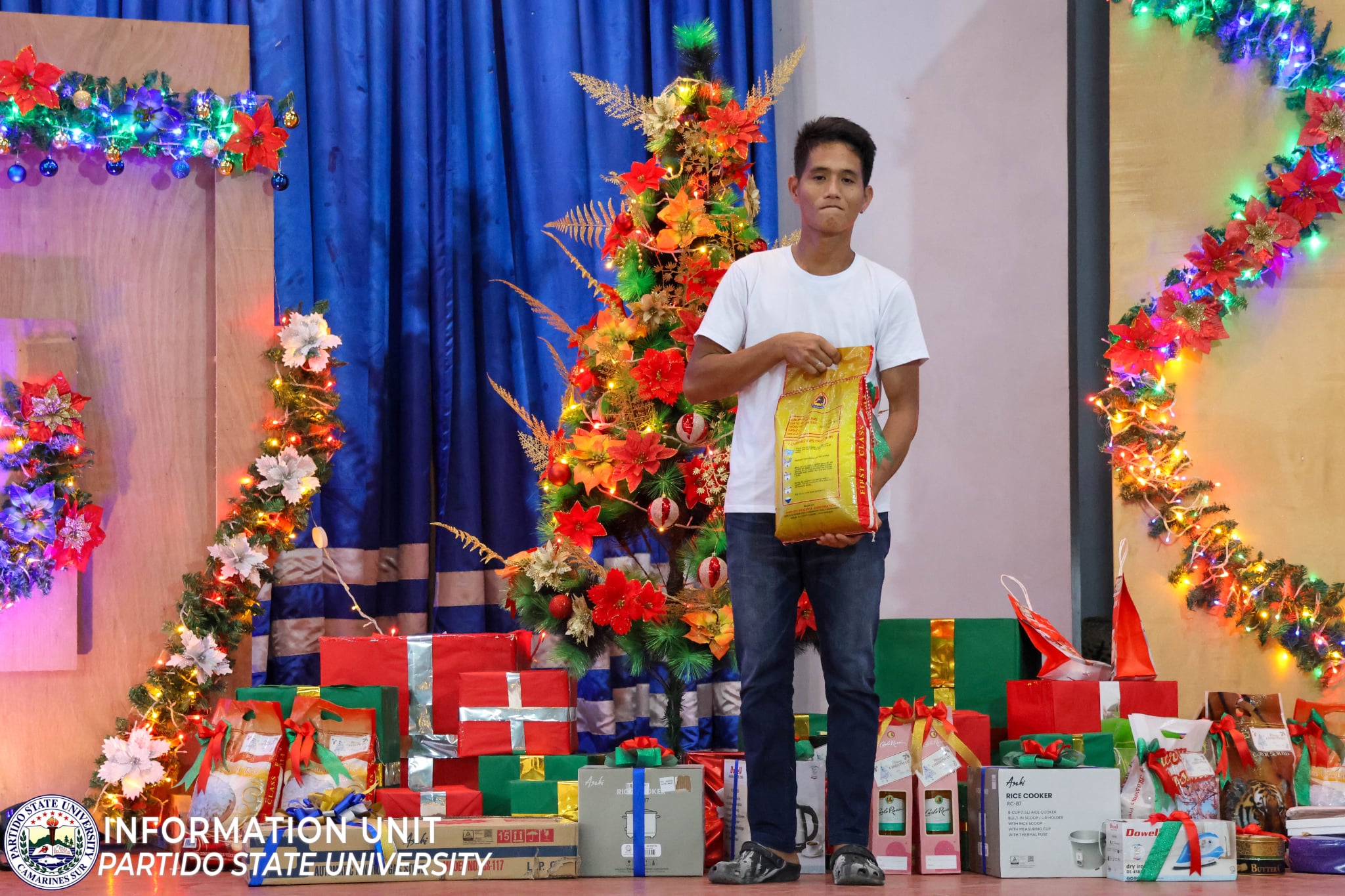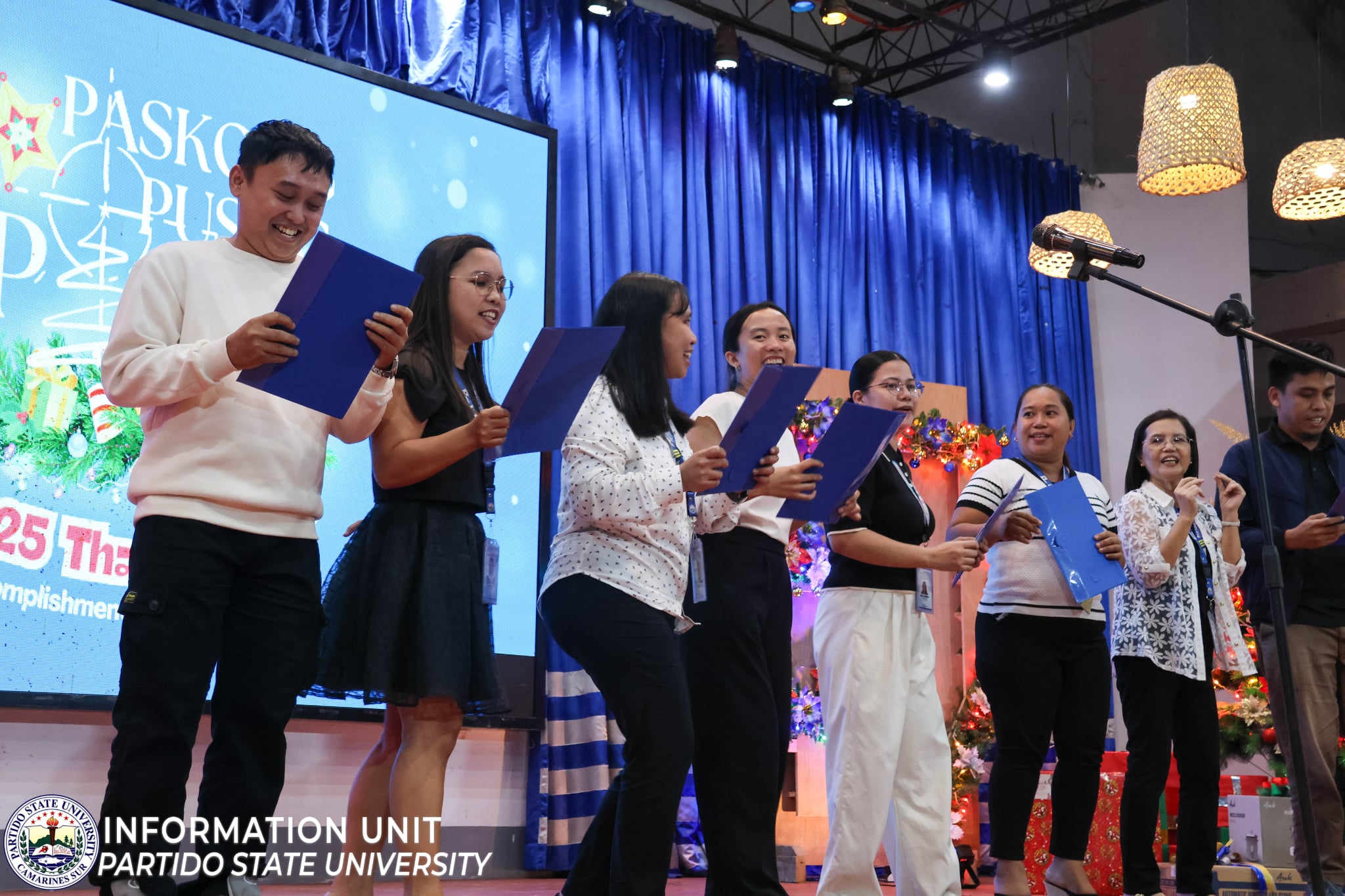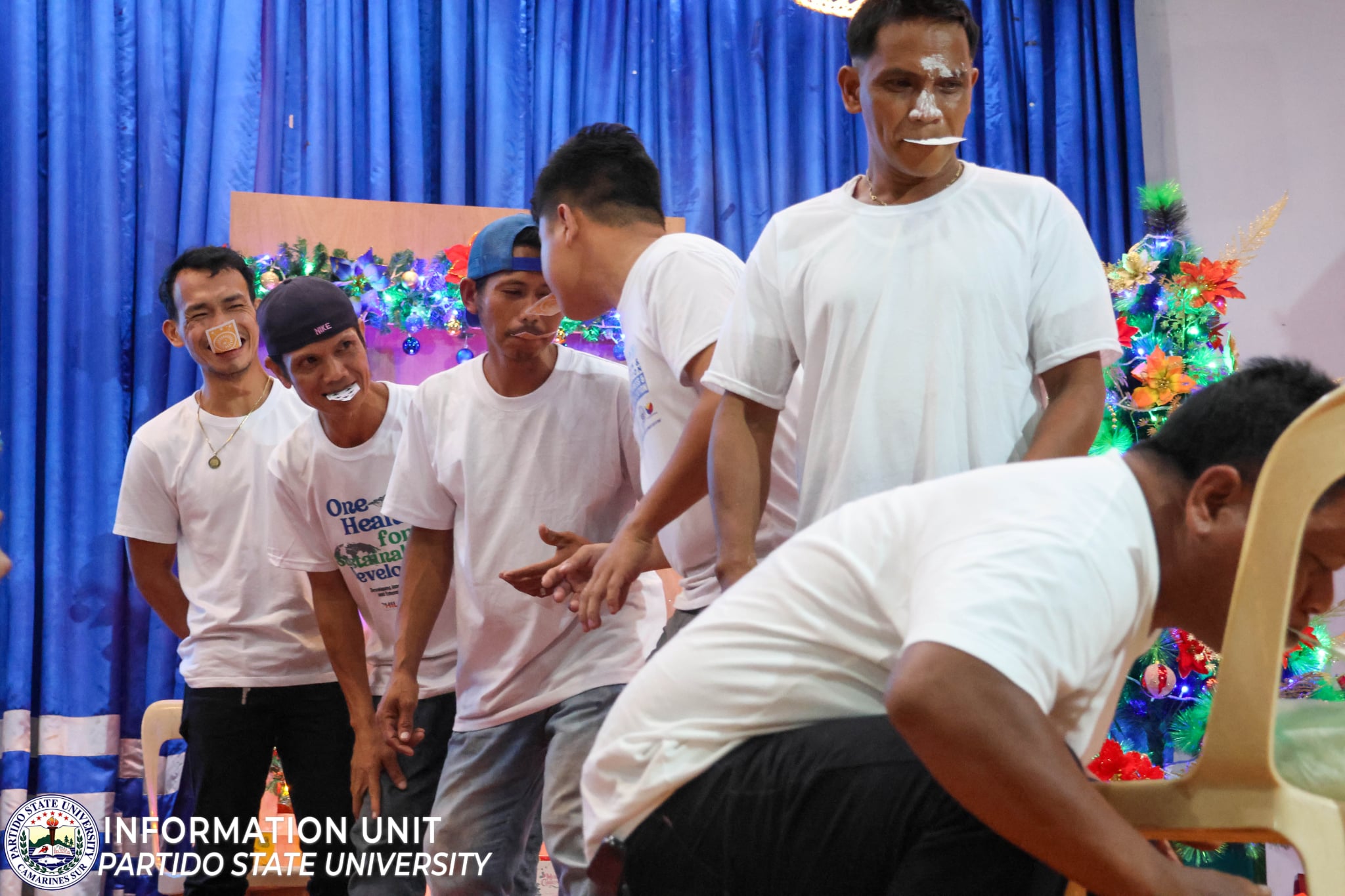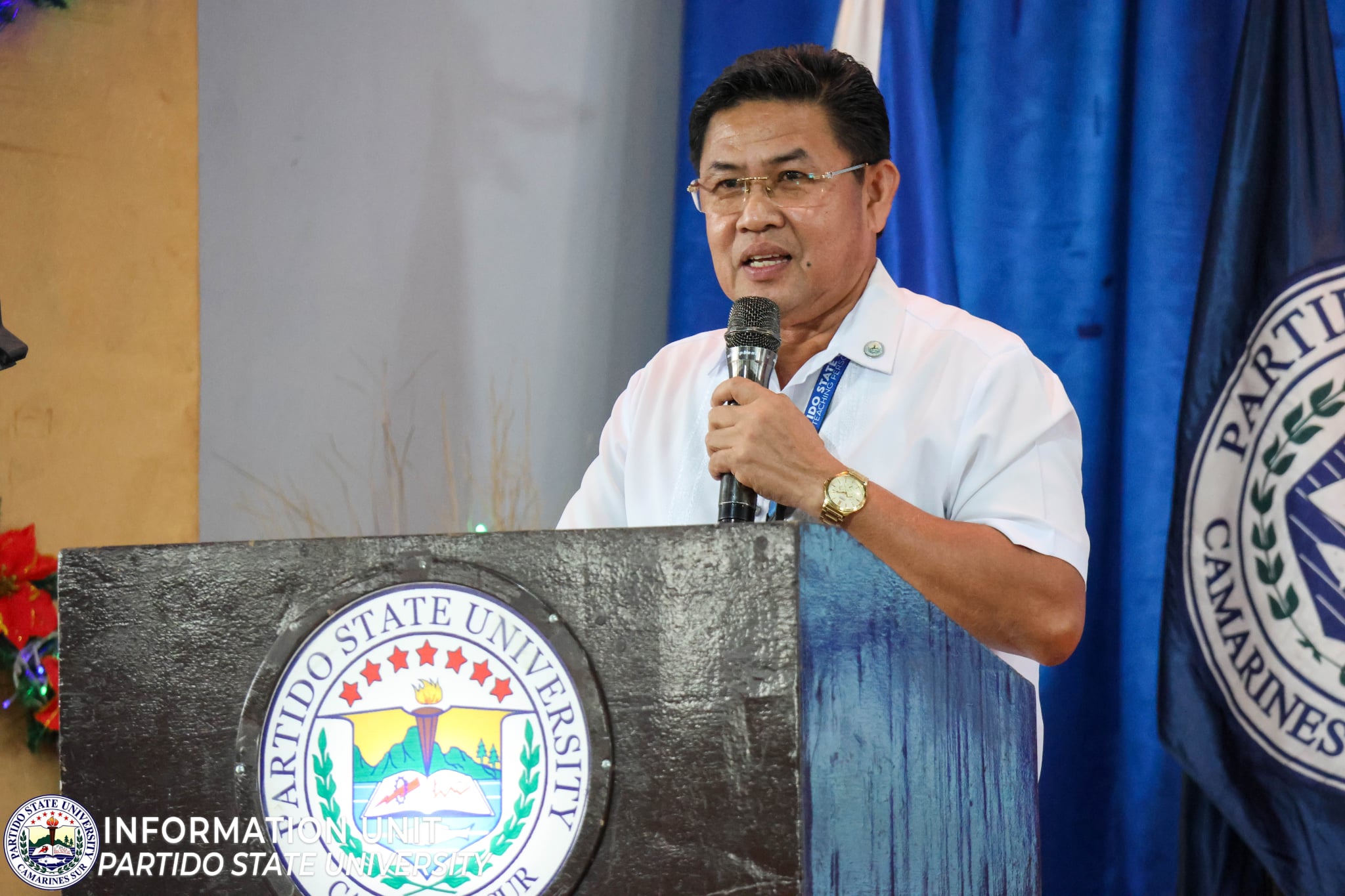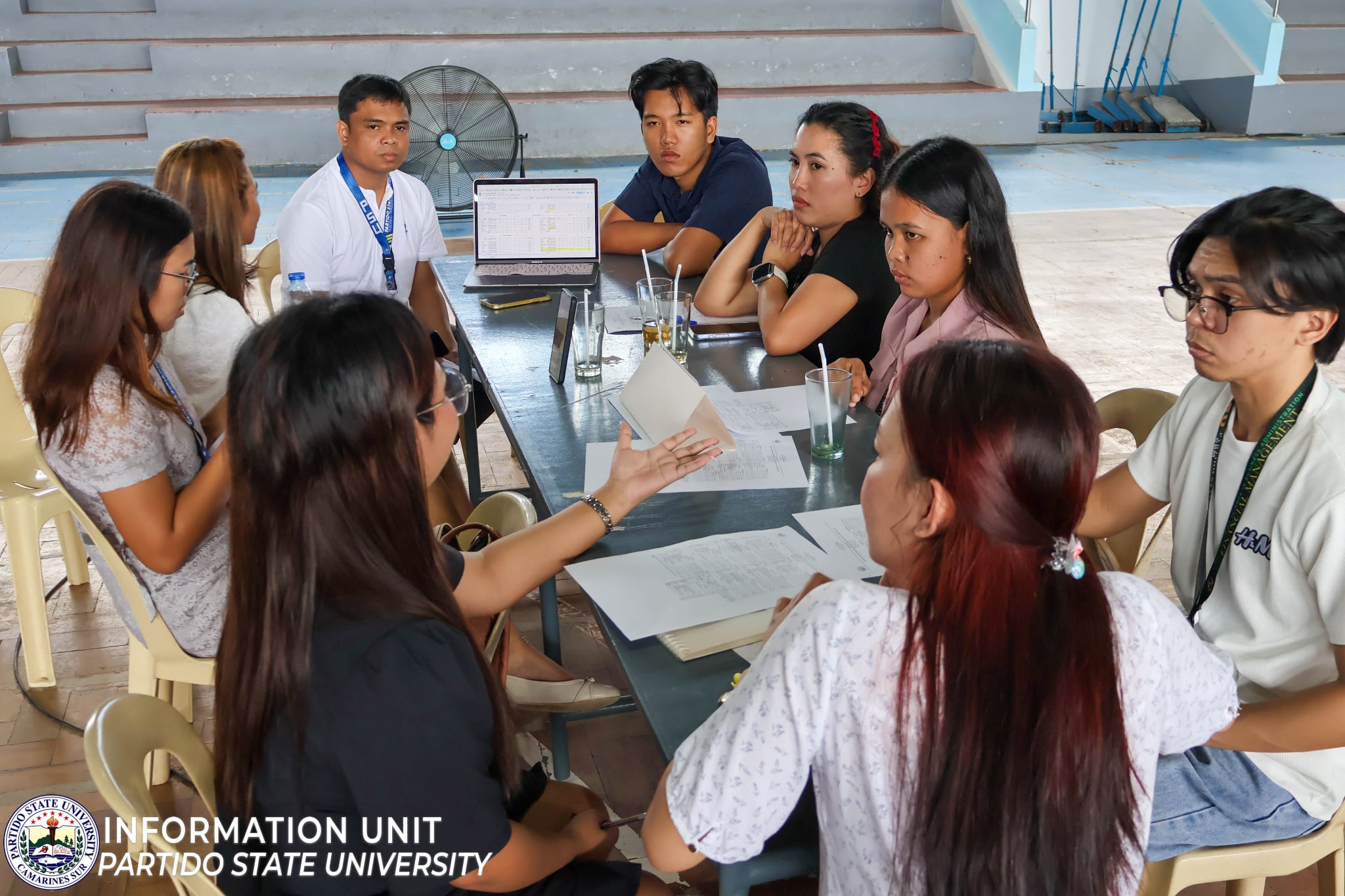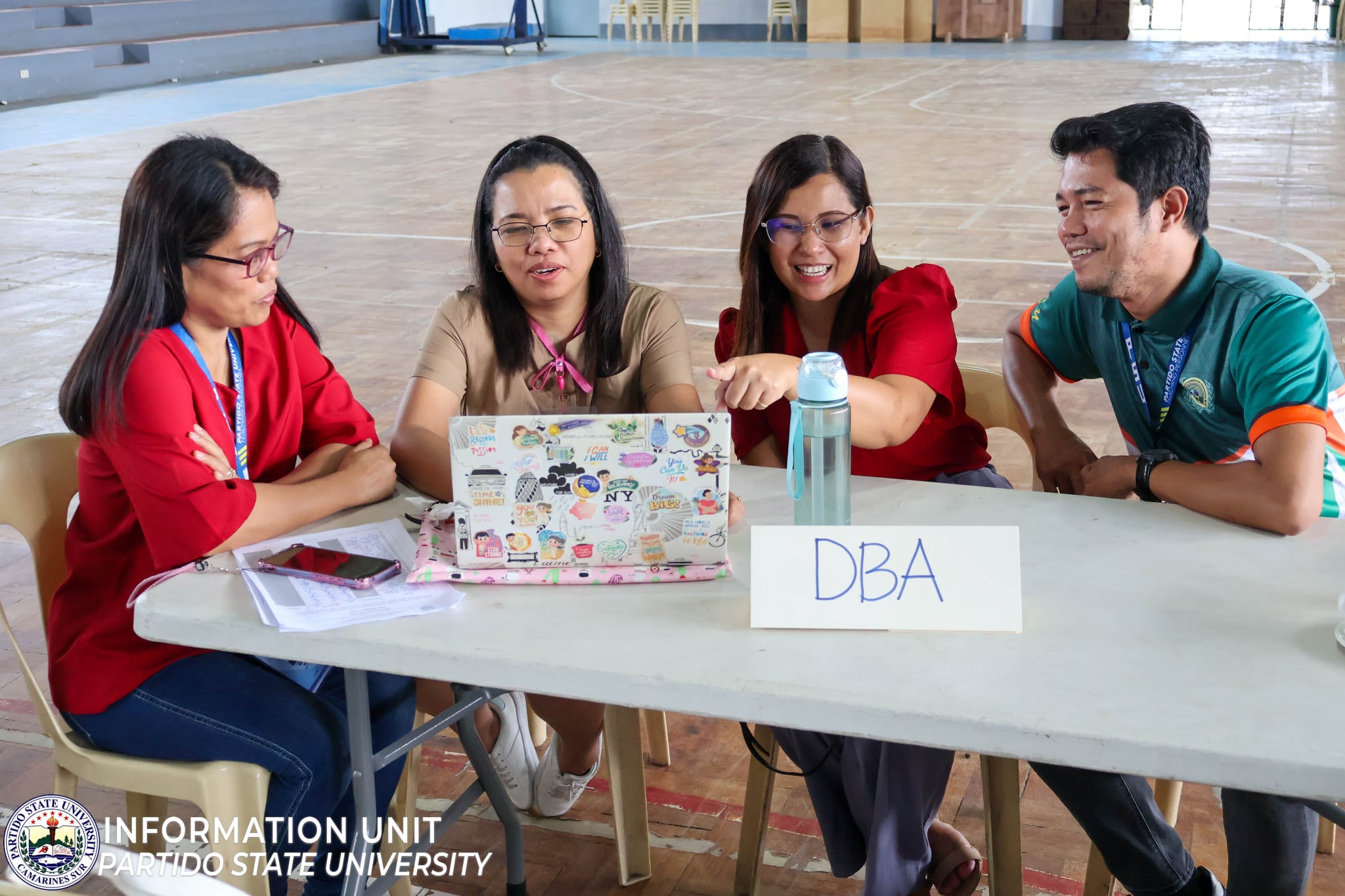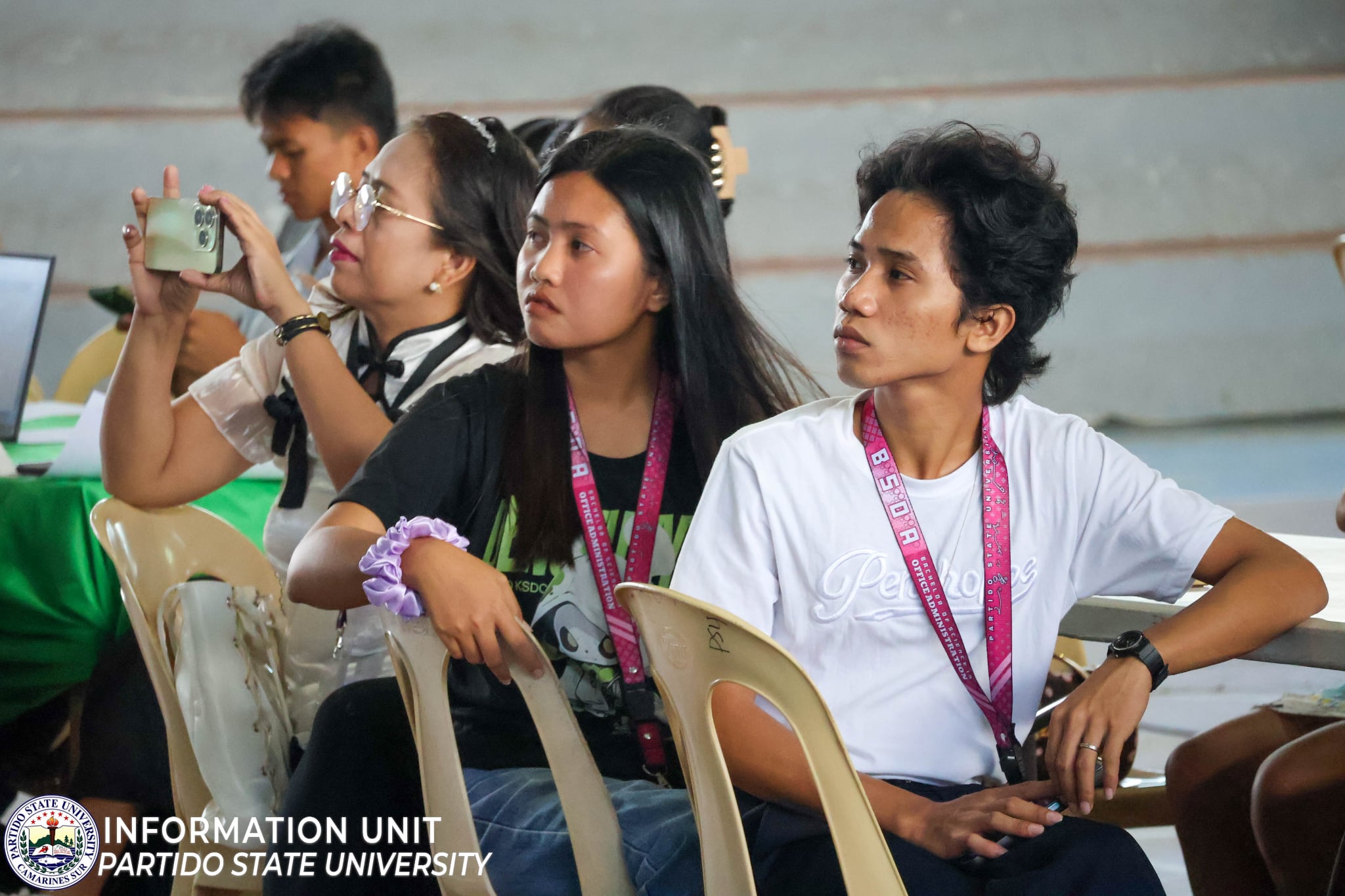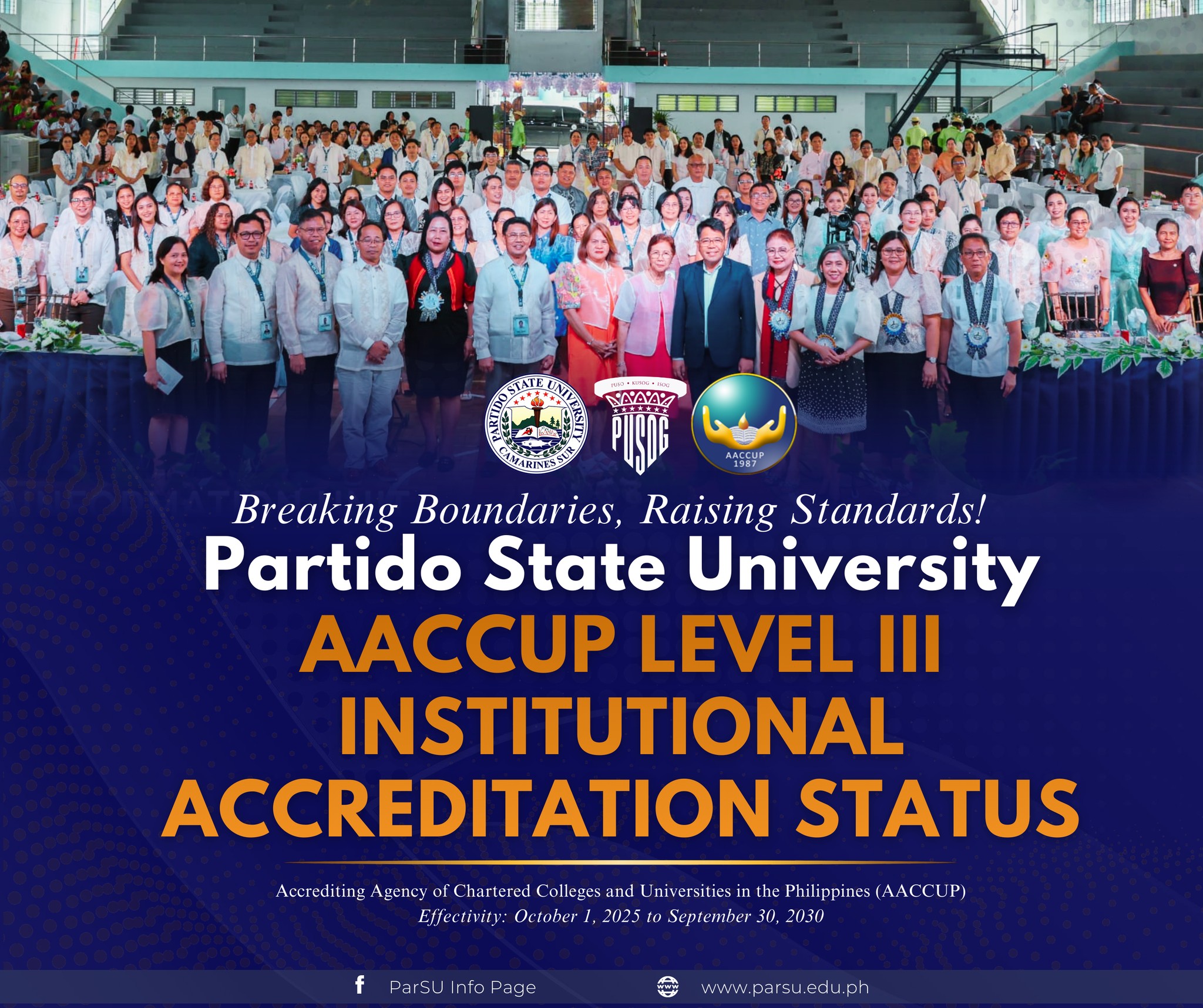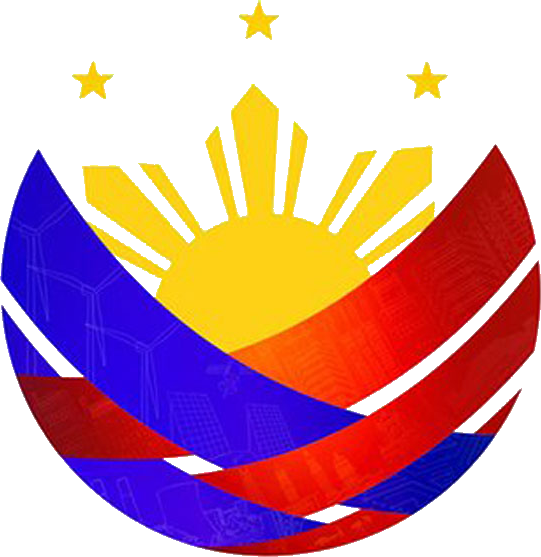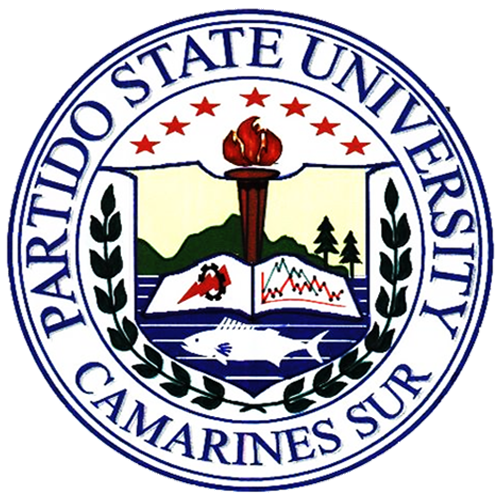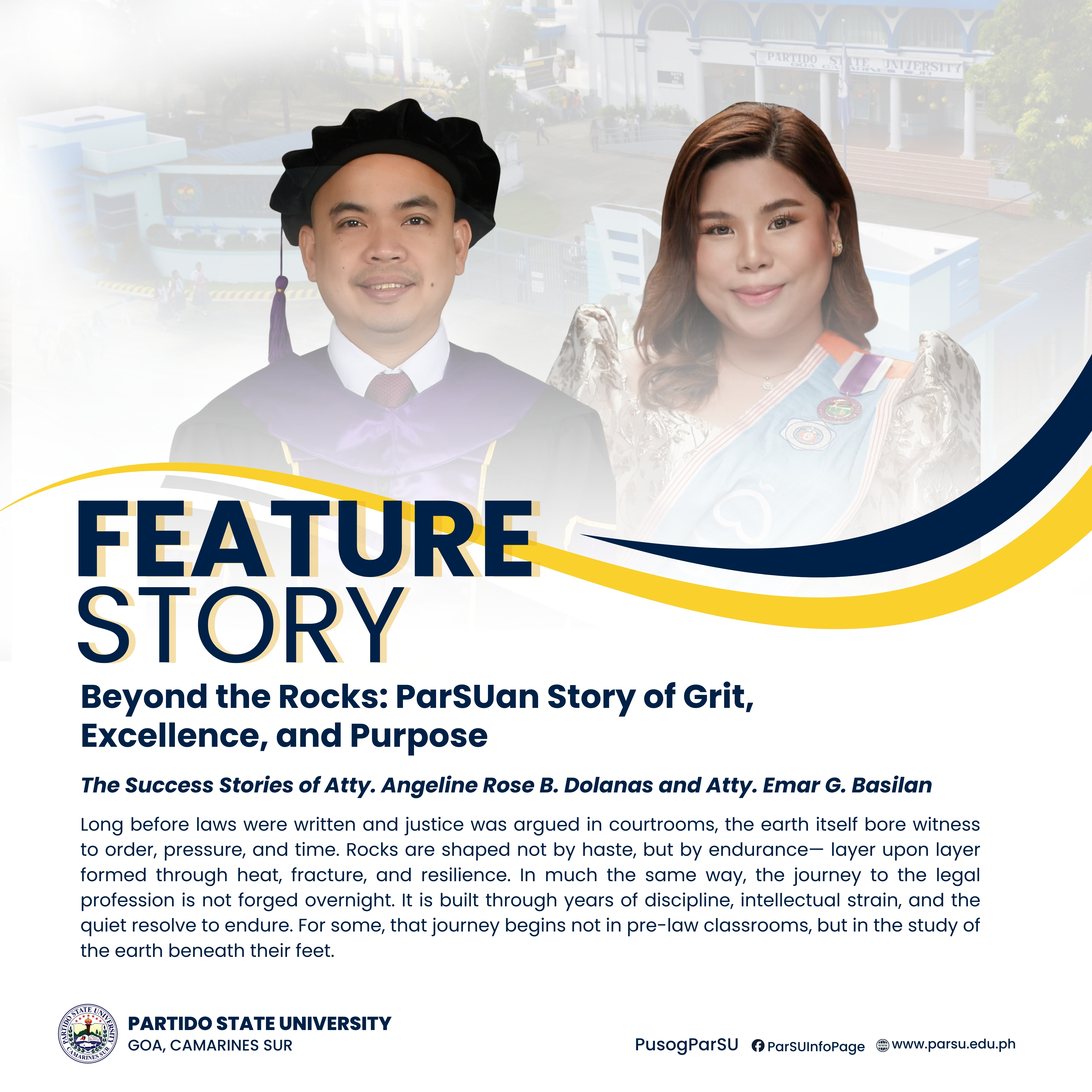
Long before laws were written and justice was argued in courtrooms, the earth itself bore witness to order, pressure, and time. Rocks are shaped not by haste, but by endurance— layer upon layer formed through heat, fracture, and resilience. In much the same way, the journey to the legal profession is not forged overnight. It is built through years of discipline, intellectual strain, and the quiet resolve to endure. For some, that journey begins not in pre-law classrooms but in the study of the earth beneath their feet.
The release of the September 2025 Bar Examinations results last January 7, 2026, marked a life-changing achievement for thousands of aspiring lawyers across the country and a milestone for Partido State University (ParSU), with two graduates of ParSU's Geology Program earning their place among the new members of the Philippine Bar.
Atty. Angeline Rose Bordeos Dolanas, a Class of 2020 alumna, and Atty. Emar G. Basilan of the Class of 2012 arrived at the same destination – successfully hurdling the Bar, proving that a ParSU education prepares graduates not only for their chosen field, but for paths they may discover along the way.
Their achievement is particularly remarkable as neither initially set out to become a lawyer. Both began their professional journeys immersed in the science of geology long before they found themselves navigating the equally rigorous and demanding terrain of the law. Yet the discipline, analytical thinking, and perseverance honed during their years at ParSU later became essential tools in their pursuit of justice.
𝗪𝗵𝗲𝗿𝗲 𝗙𝗮𝗶𝗹𝘂𝗿𝗲 𝗕𝗲𝗰𝗮𝗺𝗲 𝗙𝗼𝗿𝗺𝗮𝘁𝗶𝗼𝗻: 𝗔𝘁𝘁𝘆. 𝗗𝗼𝗹𝗮𝗻𝗮𝘀' 𝗦𝘁𝗼𝗿𝘆 𝗼𝗳 𝗚𝗿𝗶𝘁
Academic accolades did not define Atty. Dolana's college life at ParSU. She candidly describes herself as a "mediocre" student—someone whose name was never called for topping exams and who even failed some subjects under the Geology program. While such experiences might discourage others, for her, they became the building blocks of character.
She learned that failure was not a verdict but a lesson. "It's okay to be mediocre. It's okay to fail," she reflects. "What's important is that you learn, endure, and rise above your shortcomings."
Those formative years at ParSU taught her perseverance, humility, and patience. These values later proved indispensable in law school, where resilience often matters more than brilliance. The discipline required to revisit difficult concepts, the courage to continue despite setbacks, and the willingness to grow from criticisms were lessons she first learned in ParSU.
Her path to law, however, was never part of the original plan. After graduating in 2020, she was preparing to take the Geologist Licensure Examination when the COVID-19 pandemic disrupted timelines and postponed the boards. In the midst of uncertainty and delayed plans, she found herself at the crossroads. Encouraged by her mother, who's also a lawyer, she decided to take the Law School Admission Test (LSAT) and eventually entered law school without clear expectations. What followed next was clarity.
Early into her legal studies, Atty. Dolanas realized that law was more than a profession; it was a platform for service. The analytical mindset she developed in geology—evaluating evidence, drawing logical conclusions, and understanding complex systems—seamlessly translated into legal reasoning. "I figured that there's nothing I want to do in life but to serve the people by practicing law," she shares.
𝗪𝗵𝗲𝗿𝗲 𝗗𝗶𝘀𝗰𝗶𝗽𝗹𝗶𝗻𝗲 𝗕𝗲𝗰𝗮𝗺𝗲 𝗗𝗶𝘀𝘁𝗶𝗻𝗰𝘁𝗶𝗼𝗻: 𝗔𝘁𝘁𝘆. 𝗕𝗮𝘀𝗶𝗹𝗮𝗻'𝘀 𝗦𝘁𝗼𝗿𝘆 𝗼𝗳 𝗘𝘅𝗰𝗲𝗹𝗹𝗲𝗻𝗰𝗲
For Atty. Basilan, a ParSU Class of 2012 alumnus, the story unfolds differently, yet with equal depth. He was a working student during his undergraduate years, juggling academic responsibilities while building professional experience. This early exposure to responsibility shaped his discipline, time management, and appreciation for sacrifice.
These qualities culminated in a defining achievement: passing the 2012 Geologist Licensure Examination as a Topnotcher, ranking Top 4 nationwide. This milestone underscored a lifelong principle of success. "My schooling in ParSU was a significant contribution in navigating law school," he explains. "It taught me how to properly allocate my time and understand the value of sacrificing immediate pleasure for greater rewards in the future."
Years later, while holding a full-time position at the Mines and Geosciences Bureau (MGB), he pursued law school, drawing from the same discipline that once guided him through geology and the licensure examination. The rigor of scientific training, combined with ParSU's emphasis on responsibility and perseverance, prepared him to manage the demanding balance between professional work and legal education.
𝗪𝗵𝗲𝗿𝗲 𝗣𝘂𝗿𝗽𝗼𝘀𝗲 𝗙𝗶𝗻𝗮𝗹𝗹𝘆 𝗧𝗼𝗼𝗸 𝗦𝗵𝗮𝗽𝗲
Despite their contrasting academic narratives, both lawyers point to ParSU as the common ground that prepared them for success. The University's College of Science - Geology Program did more than impart technical knowledge; it cultivated critical thinking, resilience, adaptability, and a strong work ethic, which are essential in both science and legal practice.
More importantly, their journeys speak differently to current ParSU students and alumni: 'a degree does not define the limits of one's future.'
For Atty. Dolanas, students shouldn't be intimidated by professional titles or the prestige often attached to certain fields. "Find your purpose," she advises. "If it is not within your profession, do not be afraid to explore. Take that risk, because that risk will give you inner satisfaction [that] nothing else can fulfill."
For Atty. Basilan, growth begins with courage and self-belief. "Go for your dreams, whether they are related to your college degree or not," he encourages. "Don't be afraid to try something new or to step out of your comfort zone. The best investment you can make is in yourself."
Their shared success in the September 2025 Bar Examinations reinforces a powerful truth: Partido State University prepares graduates not for a single destination, but for lifelong learning and service across disciplines.
Congratulations, Atty. Dolanas and Atty. Basilan! The whole ParSU community is proud of you!

